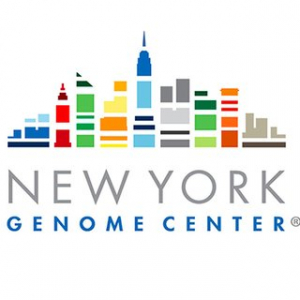Job Description
Position Description
This position at the New York Genome Center is within the computational biology group and will report to a Bioinformatics Scientist. As a Bioinformatics Analyst, you will contribute to the analyses of cancer genome samples sequenced at NYGC. This includes the maintenance, benchmarking, and continuous improvement of our analysis pipelines, as well as participation in downstream analyses. Additionally, you will apply and implement various tools and algorithms to analyze cancer sequencing data, collaborate with NYGC staff on developing new tools and with external investigators on the integration of genomics results within their scientific projects.
Key Responsibilities:
Contribute to setup, management and maintenance of genomic data analysis pipelines;
Analyze sequencing data using the established pipeline(s);
Perform appropriate QC measures;
Stay current on innovations in DNA sequencing technologies and analyses;
Benchmark new tools for cancer sequencing data analysis and propose improvements;
Support and contribute to the development and implementation of innovative computational approaches for the analysis of large sequence datasets from NGS technologies;
Participate in collaboration with external and internal researchers on the analyses of NGS data;
Interpret and present the results of the computational and statistical analyses to collaborators and co-workers;
Work with the software engineering team to ensure pipeline upgrades and new pipelines are properly implemented in our production workflow manager;
Assist collaborators with data access, analysis, and interpretation;
Interact daily with other bioinformatics analysts/programmers;
Publish results in scientific journals and give presentations at conferences;
Participate in community outreach.
Required Experience
Position Requirements
Bachelor’s degree with at least 2 years work/research experience or a Master’s degree in bioinformatics, computational biology, genetics, computer science or similar;
1+ years’ experience working with next generation sequencing data required (ideally human genomics), including experience using standard NGS analysis software (including samtools, GATK, Picard, bedtools, etc);;
Excellent written and verbal communication skills required.
Experience in python and R required, and one or more programming languages such as Perl, Java, or C/C++ desirable, as well as willingness to learn new programming languages as necessary to collaborate at NYGC;
Experience working with TCGA, COSMIC, 1000 Genomes, ENCODE, or GTEx data preferred;
New York Genome Center
New York, New York
The New York Genome Center (NYGC) is an independent, nonprofit academic research institution focused on furthering genomic research that leads to scientific advances and new insights and therapies for patients with neurodegenerative disease, neuropsychiatric disease, and cancer. Leveraging our strengths in whole genome sequencing, genomic analysis, and development of genomic tools, the NYGC serves as a nexus for collaboration in genomic research for the New York community and beyond.
The NYGC harnesses the expertise and builds on the combined strengths of our faculty, member institutions, scientific working groups, affiliate members, and industry partners to advance genomic discovery. Central to our scientific mission is an outstanding faculty who are leading independent research labs based at the NYGC and jointly with one of our member institutions, bringing a multidisciplinary and in-depth approach to the field of genomics.
The NYGC has attracted leading scientists whose wide-ranging expertise — including single cell genomics, genome engineering, population genomics, statistical genetics, computational biology and bioengineering —brings a multidisciplinary and in-depth approach to the field of genomics. NYGC senior and core faculty members, who hold joint appointments at leading New York institutions, include a Nobel Laureate, three Lasker award winners and five members of the National Academy of Sciences. Since its inception, NYGC researchers have published more than 200 research studies in leading, high-impact scientific journals.
-
IndustryNonProfit
-
No. of Employees50 - 250
-
Website
-
Jobs Posted41


